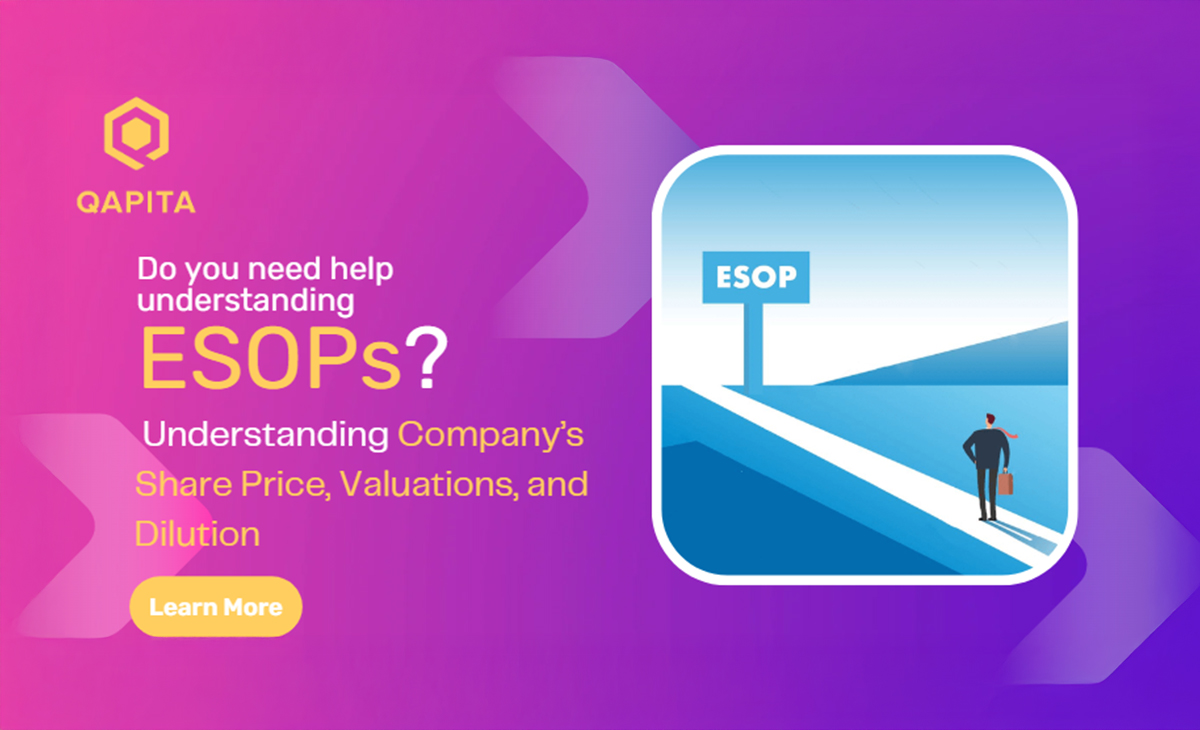In the realm of equity compensation, accurately valuing ESOPs and equity awards is a complex endeavor. Amit Majumder, CFA, a seasoned professional in the equity compensation space, provides valuable insights on the evaluation requirements and fair value determination. With over a decade of experience across different organizations and jurisdictions, Amit's expertise sheds light on the importance of fair value and the adherence to valuation requirements. By employing various valuation methods and meeting specific requirements of accounting standards, organizations can effectively allocate expenses and ensure transparency and accuracy in the valuation process and ongoing financial reporting and disclosures.
Determining Fair Value for Equity Compensation: Valuation Requirements
When it comes to equity compensation, determining the appropriate amount to amortize requires ascertaining the fair value of ESOPs or equity awards. Unlike cash payments, the valuation of equity compensation is more complex. To address this, two key concepts come into play. Let's delve into them:
1. Fair Value: The fair value represents the estimated worth of the equity compensation instrument for expense amortization purposes. It is crucial to assess the fair value accurately to allocate the appropriate expense over the relevant period. Various valuation methods, including several option pricing models, can be employed to determine fair value.
2. Valuation Requirements: The process of fair value valuation should adhere to specific requirements, which may vary based on accounting standards and regulations. These requirements ensure transparency and accuracy in the valuation process. Companies may need to engage external experts or utilize internal resources to meet these valuation requirements effectively.
By considering these valuation requirements and determining the fair value of equity compensation awards, organizations can accurately amortize the expense over the grant's life cycle.
Determining Fair Market Value and Fair Value for Equity Compensation
Determining Fair Market Value for Equity Awards
One key concept to consider in equity compensation is the fair market value. Fair market value which represents the share price of the underlying security that employees are eligible to receive by participating in the company's equity incentive plan. For example, when employees receive options under the company's Employee Stock Option (Plan), they receive a right to exercise those options and convert them into the underlying shares. For publicly listed companies, determining the fair market value of ordinary shares or common stock is relatively straightforward, as it can be determined through market price discovery. However, for privately held companies, an valuation exercise is typically required to establish the fair market value of the underlying shares. This valuation ensures that employees are granted equity awards based on an accurate assessment of the company's value. Various models can be used to determine fair market value, such as the OPM (Options Pricing Model) and multiples derived from comparable companies and peers. It's important to note that the fair market value needs to be maintained and updated for ongoing reporting and compliance purposes, especially for companies subject to specific legislation, such as 409A requirements in the United States.
Determining Fair Value for Accounting Purposes
When it comes to accounting for equity compensation, it's essential to determine the fair value of the equity instrument being granted. This valuation process is crucial for expense amortization. The fair value of the equity instrument, such as options, needs to be determined on the measurement date, which is the grant date. Simply multiplying the share price (aka fair market value) by the number of options granted is not sufficient. Accounting standards, such as IFRS 2 globally and ASC 718 in the US, require the use of specific models to determine the fair value of the equity instrument.
These models consider various factors and inputs, including the fair market value or share price of the company. The fair value of the equity instrument is then amortized over the vesting period.
To make it clear, fair market value (FMV) is the share price of the underlying shares, whereas fair value (FV) is the value that is used for accounting of the allocated awards. FMV is one of the inputs into appropriate valuation models to determine FV.
Frequency of ESOP Valuation
The frequency of ESOP valuation depends on the number of grants made throughout the year and the plan design of the company. In most cases, companies have annual grants, which means a new grant is issued on a specific measurement date each year. In such instances, a valuation would be required on that measurement date to determine the fair value of the equity awards.
However, if a company issue grants at different times during the year, for example, in January and July, each grant would have a separate measurement date. In this scenario, it is necessary to conduct a valuation for each measurement date because the inputs for the option pricing model, such as share price, volatility, and risk-free rate, will likely vary This approach acknowledges that the valuation can change based on the input parameters used in the valuation model.
CONCLUSION:
Determining the fair value of equity compensation is a critical aspect of effectively managing ESOPs and equity awards. By considering the evaluation requirements and utilizing appropriate valuation methods, organizations can accurately allocate expenses over the relevant period. The concept of fair market value plays a crucial role, especially for privately held companies, where valuation exercises are needed to establish the value of underlying shares. Additionally, accounting standards require the use of specific models to determine the fair value of equity instruments for expense amortization purposes. The frequency of ESOP valuation depends on the number and timing of grants issued, with separate valuations needed for each measurement date. Adhering to accounting standards and best practices ensures accurate determination of fair value, ultimately benefiting both employees and companies.


 ESOP Management
ESOP Management

 Liquidity Solutions
Liquidity Solutions

 ESOP Consulting
ESOP Consulting

 Fund Management
Fund Management













































